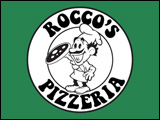Working On Managing Blood Sugar? Try These!
Xylitol – A naturally occurring sugar alcohol found in many fruits and vegetables. It is often derived from hardwood/birch tree bark or from corn. It comes in at around 30 calories per tablespoon with a very low glycemic index of 7. Xylitol is a natural insulin stabilizer and may actually help reduce cravings. It is great for baking because it can be used in a 1:1 ratio with sugar. New research also shows that xylitol helps to prevent cavities by promoting a healthy pH balance in the mouth, enhance mineralization of tooth enamel and inhibit plaque formation. Xylitol is approved for use and has no known toxic levels, although excessive use might cause a mild laxative effect. It is however, toxic to dogs. Look for a non-GMO, birch-derived product! Note: Erythritol is a similar ingredient with comparable health benefits but virtually no calories or glycemic index.
Coconut Palm Sugar – A natural sugar evaporated from the sap of coconut trees. It has roughly 30 calories per tablespoon and a glycemic index of 35. Due to the fact that it is a slow-release food (because of inulin fibre content), it is considered diabetic-friendly! It is often used as a substitute to brown sugar because of its caramelized flavor. It provides some vitamins and minerals. When shopping for coconut sugar, choose a pure, organic form.
Looking to Cut Down on Calories? Try This!
Stevia – This is a natural sweetener, extracted from the leaves of the Stevia Rebaudiana herb (aka: honey leaf). It has 0 calories and 0 glycemic index. Due to the fact that it is up to 300x sweeter than sugar, it is recommended to use 1 tsp per cup of sugar needed. Stevia has been proven to be a safe and natural option as a sugar substitute. There are scientific studies supporting claims that it has the ability to lower blood pressure and help control blood sugar in diabetics. You can buy stevia in powder and liquid form. Certain brands may have a slightly bitter aftertaste. Look for a blend that uses the whole stevia leaf and choose a pure, natural or organic form, without additives or fillers.
Want to Slowly Ease Off of White Sugar? Try These!
White sugar has a glycemic index of around 68 and 48 calories per tablespoon. However, it is nutritionally void as the nutrients have been removed during processing. Did you know that molasses is a nutritious by-product that is removed during the refining process of white sugar? Brown sugar is simply white sugar with the molasses added back in!
Cane Sugar – This is an extract from sugar cane and is available in various forms. Turbinado or Demerara (evaporated) cane sugar is partially processed. It retains some natural molasses and has a glycemic index of around 65. While, Sucanat (dehydrated) cane sugar is from whole, unrefined sugarcane. It has a lower glycemic index of 43 and contains all of the molasses (nutrients) present in whole sugarcane, making it the more nutritious form. Both have roughly 45 calories per tablespoon. Use both of these options in a 1:1 ratio with white sugar and choose organic!
Want to Boost Nutrition? Try These!
Honey – Honey is a natural sugar produced by bees from the nectar of flowers. It has roughly 65 calories per tablespoon and a variable glycemic index (higher in pasteurized, commercial honey). For nutritional benefits, choose raw, local honey. This honey has not been heated at high temperatures, processed, ultra-filtered or pasteurized. Therefore, it retains all of its nutrients and pollen, offering natural vitamins, minerals, phyto nutrients and enzymes. Raw, local honey has antioxidant, anti-viral, anti-bacterial, anti-fungal, anti-inflammatory and wound healing properties! Plus, it can be used to inoculate against seasonal allergies.
Maple Syrup – It is a natural sugar made by boiling sap from maple trees. It has roughly 50 calories per tablespoon and a higher glycemic index of 54. Maple syrup is a source of manganese, vitamin B2 (riboflavin), zinc as well as magnesium, calcium and potassium. When shopping, look for 100% pure & organic varieties. It is advised to use 3/4 cup of both honey and maple syrup per cup of sugar in baking, while reducing the amount of liquid in the recipe by a few tablespoons.
Fruits & Vegetables – Produce items (such as bananas, dates, pumpkin, beets, carrots, apples) can be pureed and used as natural sweeteners in recipes. Although often high in natural sugars, they provide plenty of fibre as well as vitamins, minerals and phyto nutrients. Calories and glycemic index will range based on ingredient selection. Choose organic to eliminate risk of chemical exposure.
These are the most popular sweeteners used today. Depending on your unique needs, you may favor one over another or dabble with several options based on culinary uses. However, as with all things in life, moderation and quality are always key. So go ahead, satisfy that sweet tooth!



